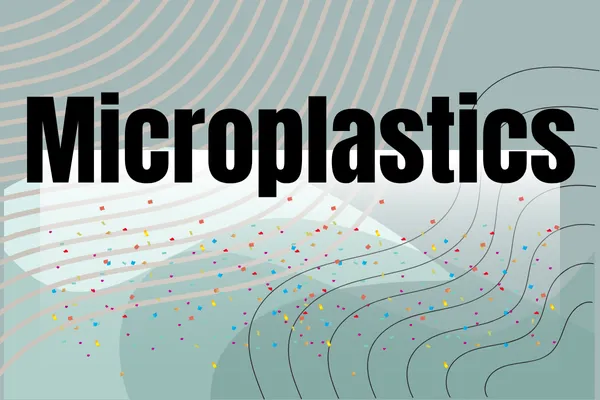
Microplastics
Microplastics: Tiny Toxins with Big Health Risks
Microplastics are everywhere. These tiny plastic particles, less than 5 millimeters in size, come from broken-down plastic waste, synthetic clothing, packaging, and personal care products. Although small, their impact upon us is huge.
We ingest microplastics from plastic bottled water, tap water, food packaging, and from microwaving in plastic containers. We breath microplastics when they float and circulate with dust. These come from synthetic carpets and textiles like clothing. We absorb microplastics through the skin from some body care products and cosmetics.
Once inside the body, microplastics pass through the gut lining and enter the bloodstream. They can travel to organs like the liver, kidneys, and the brain. Studies have found plastic particles in human placentas, lung tissue, arterial walls, and men’s reproductive organs. Alarmingly, studies prove that these particles can go deeper than we ever thought.
Shockingly, scientists estimate that the average American ingests the amount of a credit card each week. So, what’s the damage?
Inflammation: The body sees microplastics as foreign invaders, which can lead to chronic inflammation. This is the cause of many health issues, including autoimmune conditions, dementia and cardiovascular disease.
Toxin Transporters: Microplastics don’t just pollute on their own. With harmful BPA, phthalates, and heavy metals, they interfere with hormones, damage cells, and disrupt metabolism.
Gut Disruption: Microplastics upset our gut microbiome, affecting digestion, immunity, and even mood.
Oxidative Stress: These particles create an overload of free radicals, damaging cells and DNA, and speeding up the aging process.
The long-term effects are being studied. Currently what we know is serious enough to raise multiple red flags. What can you do?
Reduce your exposure: Drink from glass or metal water bottles. Don’t microwave or eat from plastic containers. Don’t use plastic wrap, try beeswax wraps. Wear natural fiber clothing like organic cotton, silk, or wool and avoid synthetic clothing. Support efforts to reduce plastic pollution.
Detox by supporting your liver and bile flow. Include bitters like artichokes, dandelion greens and arugula. Useful digestive binders include activated charcoal, chlorella and zeolite. Studies show that sweating actively removes microplastics from your system, so make infrared saunas or ionic foot spa sessions a regular thing. Hydrate and include electrolytes to support circulation and kidney filtration.
Your body is wise and resilient, but it doesn’t recognize plastic. Let’s give it less to fight. Health and Hugs.
Suzan Moody is a Certified Natural Health Practitioner at Healthy Habitz in Frankenmuth, Michigan, and specializes in Women’s Detox and Health.
The statements in this article have not been evaluated by the Food and Drug Administration (FDA). This information is for educational purposes only and is not intended to diagnose, treat, cure or prevent any disease. Please consult with your medical care provider prior to changing your dietary supplements.
